Thoroughly overcome existing problems and difficulties
The 2004 Electricity Law and its amendments and supplements have established a legal framework for electricity activities and electricity use, protecting the legitimate interests of electricity customers and organizations operating in the electricity sector, meeting the increasing demand for electricity and contributing to promoting the country's socio -economic development.
However, after nearly 20 years of implementation and through 4 amendments and supplements to a number of articles, the practice of implementing the law on electricity shows that there are still a number of issues that the provisions of the current Electricity Law have not met, and it is necessary to amend and supplement them to meet the goal of implementing the Party's policies on the energy sector in general and electricity in particular, especially the goal of ensuring national energy security, strengthening the assignment and decentralization, improving the effectiveness of state management of electricity, promptly adjusting social relations arising in the practice of electricity activities and electricity use. At the same time, resolving a number of problems in the implementation of the Electricity Law to improve the effectiveness of state management.
Deputy Prime Minister Tran Hong Ha chaired a meeting to listen to reports and give opinions on the draft Electricity Law (amended), on the morning of July 15, 2024. Photo: VGP
For example, regarding power development planning, mechanisms and policies for the electricity sector are still lacking in consistency. Specifically, the Electricity Law does not have enough regulations and sanctions to ensure that power projects are implemented in compliance with approved plans; there are no regulations on coordination between ministries, branches and localities in managing and handling investors of power source projects that are behind schedule, prolonged, and have no solutions. In addition, there is a lack of compliance, coordination and support from localities for approved plans, and slow allocation of resources (land, etc.) to implement projects.
Regarding investment in electricity development in rural, mountainous, border and island areas , there are still many villages, hamlets, and some islands, especially in remote areas, border areas and islands, that do not have access to electricity or have electricity but it is not safe. These areas all have very high investment rates, but are not economically and financially effective. Mobilizing resources from organizations and individuals to invest in electricity supply is a huge challenge and not feasible. Therefore, it is necessary to adjust the provisions in Clause 1, Article 61 of the Electricity Law 2004, specifically regulating the use of public investment capital for investment in developing the power grid in remote areas, border areas and islands.
Regarding the electricity price policy , in order to calculate correctly, fully and reasonably the profits of electricity units, it is necessary to inherit the principles currently stipulated in the Electricity Law and continue to supplement appropriate policies in the direction of ensuring that electricity prices reflect reasonable and valid electricity production and business costs of electricity units and are implemented publicly, transparently, equally, and without discrimination between electricity units. In addition, supplementing the electricity price policy ensures that customers are encouraged to use electricity effectively and economically.
The current Electricity Law stipulates “Implementing a reasonable retail electricity price structure for customer groups”. Therefore, it is necessary to supplement policy regulations on gradually reducing and eliminating cross-subsidy of electricity prices between customer groups not participating in the competitive retail electricity market, between regions in accordance with the development level of the electricity market; applying appropriate electricity price mechanisms for groups of electricity customers with high energy consumption; and at the same time, stipulating that the Ministry of Industry and Trade develop and submit to the Prime Minister for approval a roadmap to reduce cross-subsidy of electricity prices.
Regarding the operation and dispatching of the national power system , the current Electricity Law lacks specific provisions on decentralization to the Ministry of Industry and Trade - the specialized management ministry responsible for regulating and guiding technical issues and operating the power system to update and adjust technical regulations and operating the power system to meet the practical requirements of the national power system, which must be regularly updated according to the practice of technological innovation and the level of social development.
Minister of Industry and Trade Nguyen Hong Dien chaired the Conference to collect opinions on the content of Draft 2 of the Electricity Law (amended), April 12, 2024.
Important goals
The revised Electricity Law is built with the aim of perfecting legal regulations on electricity, in line with the Party's viewpoints, policies and guidelines, legalizing the orientations and policies of Resolution No. 55-NQ/TW; Resolution No. 36-NQ/TW; Resolution 08-NQ/TW; Resolution No. 16/2021/QH15; Conclusion No. 76-KL/TW; Resolution No. 937/NQ-UBTVQH15; Resolution No. 140/NQ-CP of the Government on innovation of mechanisms and policies, development of a synchronous, interconnected, modern and efficient energy market, in line with the socialist orientation.
At the same time, perfecting the Electricity Law aims to create a synchronous and feasible legal framework for electricity activities and electricity use. Ensuring the conformity and synchronization between electricity development policies and other relevant policies, contributing to perfecting the legal system, ensuring synchronization and consistency with relevant legal documents, and at the same time, overcoming difficulties in the implementation of the current Electricity Law.
This also creates conditions for the development of power sources and grids to meet the increasing demand for electricity of the people and the development of the socio-economy; contributing to ensuring national defense, security and energy security, in which, promoting the development of renewable energy and new energy in accordance with the development of the socio-economy.
Innovating the provisions of the Law aims to improve the feasibility and effectiveness of the implementation of the law on electricity, meeting the requirements of the development of the electricity industry in general and the competitive electricity market in particular, moving towards building a complete competitive retail electricity market, in which the focus is on adjusting the electricity price mechanism according to the market mechanism with State regulation; ensuring the promotion of autonomy in production and business of electricity units, non-discrimination in electricity activities, creating a healthy competitive environment to improve the socio-economic efficiency of electricity activities; harmoniously combining the rights and legitimate interests of electricity customers, electricity units and the State.
The promulgation of the revised Electricity Law also aims to develop a policy mechanism to encourage safe, economical, and efficient use of electricity, protect the environment, and develop sustainable energy. At the same time, it improves regulations on electricity use to ensure safety of life and property, and minimize damage to families and society.
In particular, improving the effectiveness of state management, promoting decentralization and delegation of power to the Government, the Ministry of Industry and Trade and related ministries, branches, and People's Committees at all levels in accordance with the characteristics of the Electricity industry as a technical industry, constantly changing to suit the improvements of science and technology, actively contributing to ensuring security of electricity supply.
Notable Content
As the drafting agency, the Ministry of Industry and Trade has closely followed the policies and guidelines of the Party and the State, clearly identified the existing legal gaps in the electricity sector for completion and supplementation. The drafting of the Law project complies with the provisions of the Law on Promulgation of Legal Documents 2015 (amended and supplemented in 2020).
The Electricity Law (amended) needs to be promulgated to perfect legal regulations to ensure national energy security. Illustrative photo
The Draft Law on Electricity (amended) consists of 9 chapters with 130 articles; the chapters of the draft Law are scientifically arranged and structured. The Draft Law inherits and mainly amends 62 articles on general regulations, granting of electricity operation licenses, electricity market, electricity purchase and sale, electricity prices, rights and obligations of electricity units and electricity customers, protection of electricity works and electrical safety. At the same time, 4 articles (propaganda, dissemination and education of law; application dossier for granting, amending and supplementing electricity operation licenses; rights and obligations of specialized electricity consulting units; electricity inspection) are removed, 4 articles are merged into other articles (mainly on development policy content on investment, electricity saving and electricity prices).
The draft also adds 68 articles including contents on power development planning, bidding policies for investors in power source projects, policies on handling emergency power sources, policies on development and operation of gas-fired thermal power plant projects, power source projects invested under the public-private partnership method applying the type of build-operate-transfer contract, policies on renewable energy (solar power, especially regulations on offshore wind power development), new energy with appropriate scientific and technological advances (such as hydrogen), direct electricity trading mechanism, full implementation of all levels of the competitive electricity market, moving towards eliminating cross-subsidy of electricity prices between economic sectors, types of electricity prices, electricity trading prices based on time of day, multi-component electricity prices...
Electricity is a national technical infrastructure sector, investment in electricity development must be "one step ahead" in socio-economic development. Perfecting the institution on electricity development is an important task in the industrialization and modernization of the country, the basis for developing all economic sectors and industries and serving people's lives.
The Electricity Law (amended) needs to be completed and promulgated soon for implementation in real life. Thereby, fully institutionalizing the Party's policies and guidelines on electricity development, building a competitive, transparent, and effective electricity market in line with the socialist-oriented market economy; thoroughly overcoming difficulties and obstacles in the practical implementation of the Electricity Law 2004; ensuring electricity supply security, national security, meeting the electricity demand for socio-economic development, serving the people.
Pham Ngoc
Source: https://www.pvn.vn/chuyen-muc/tap-doan/tin/d244b2ca-5184-4c07-8444-e8561fad6e7f


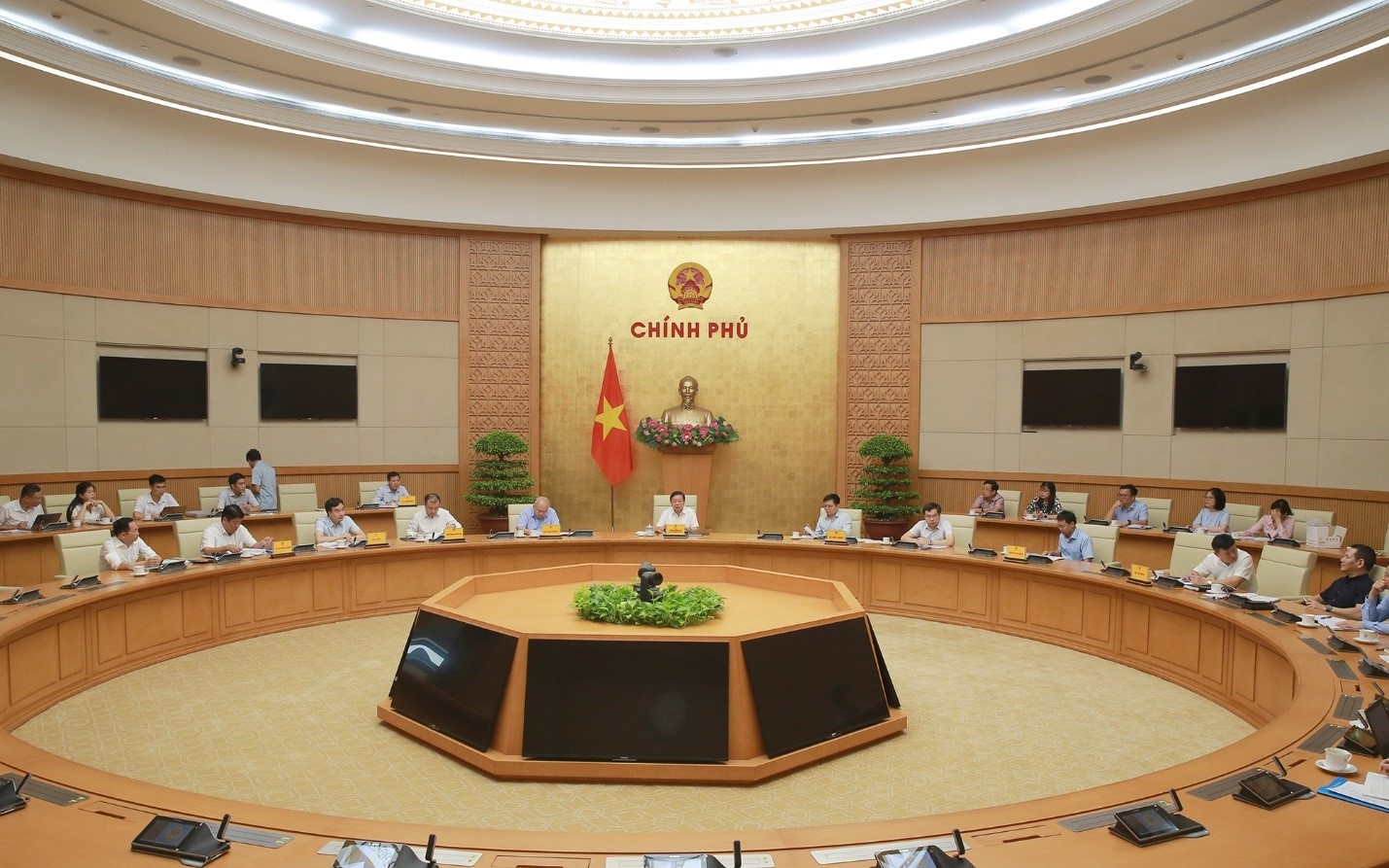
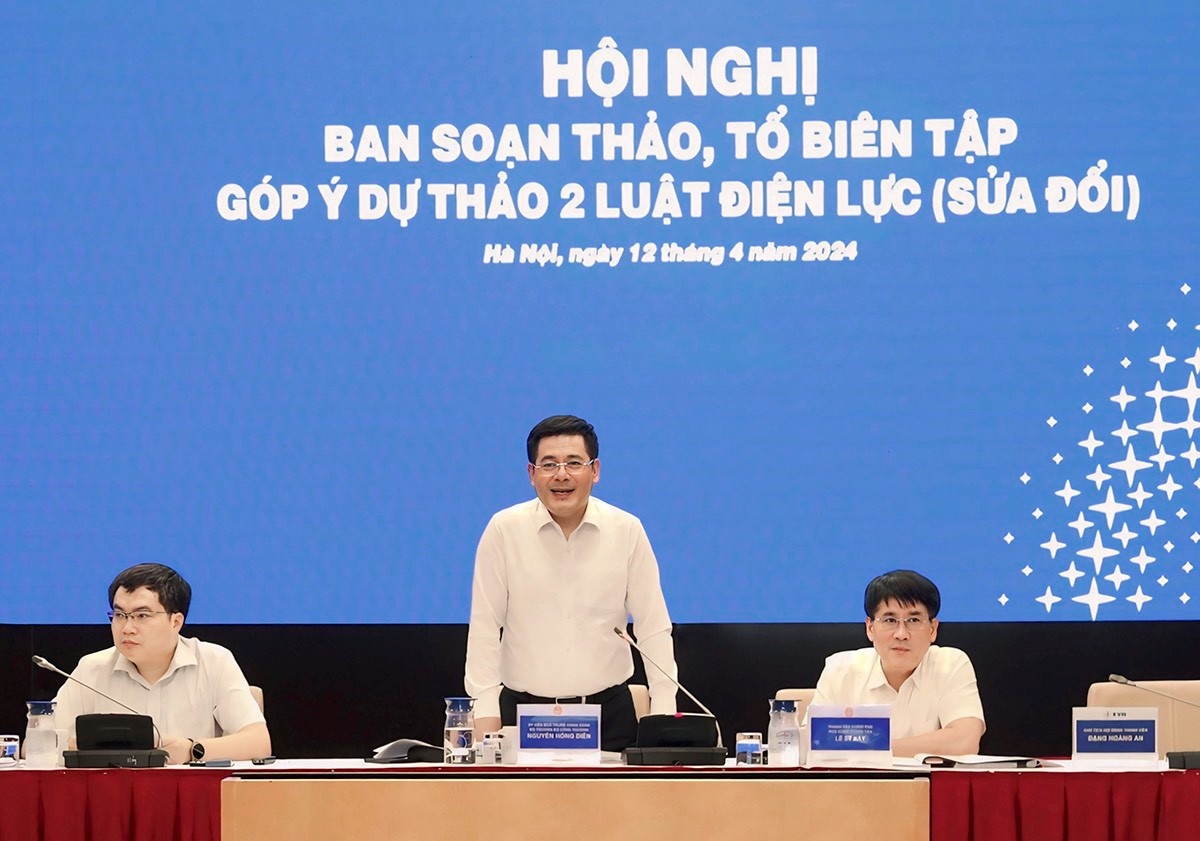
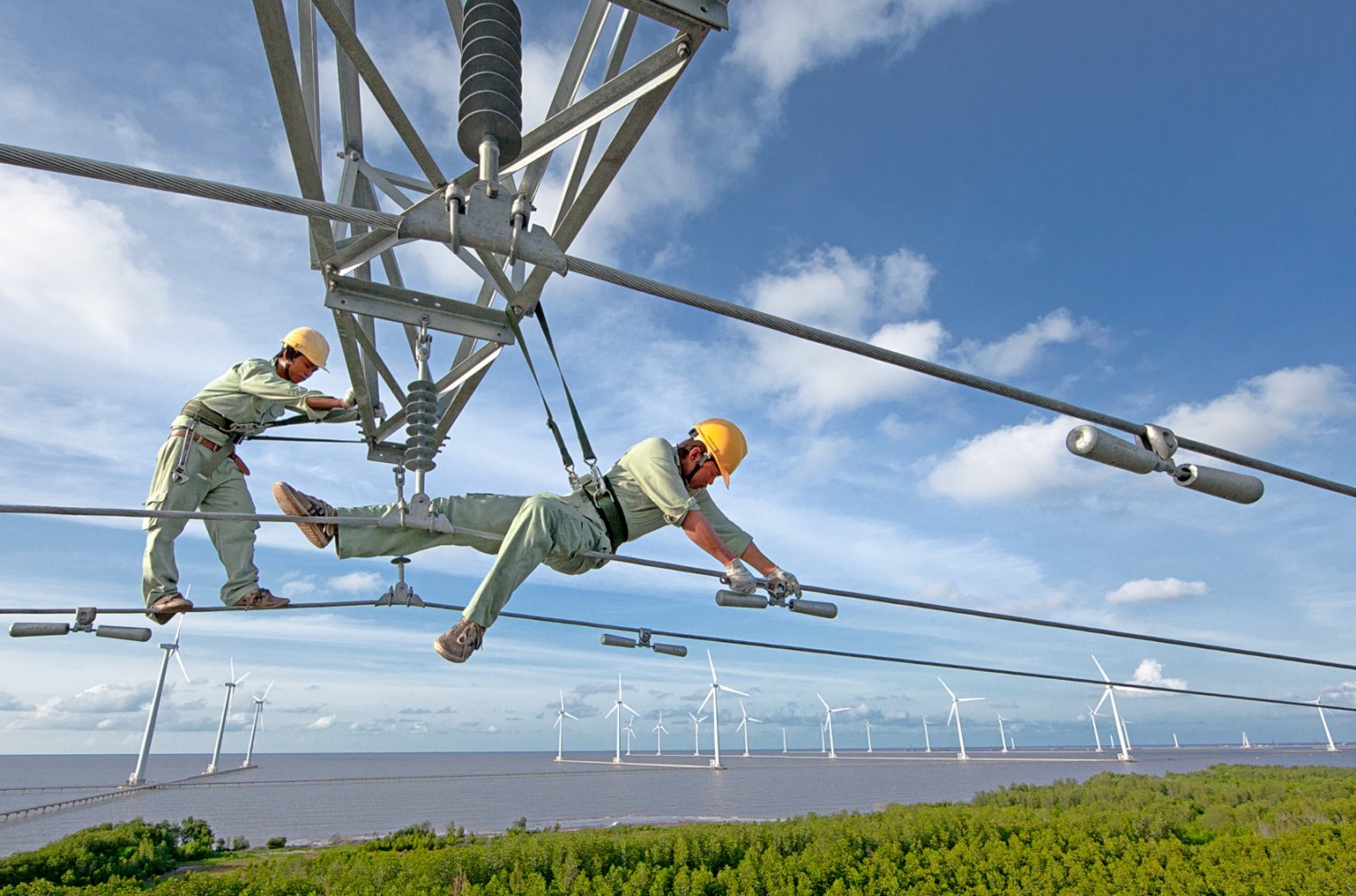

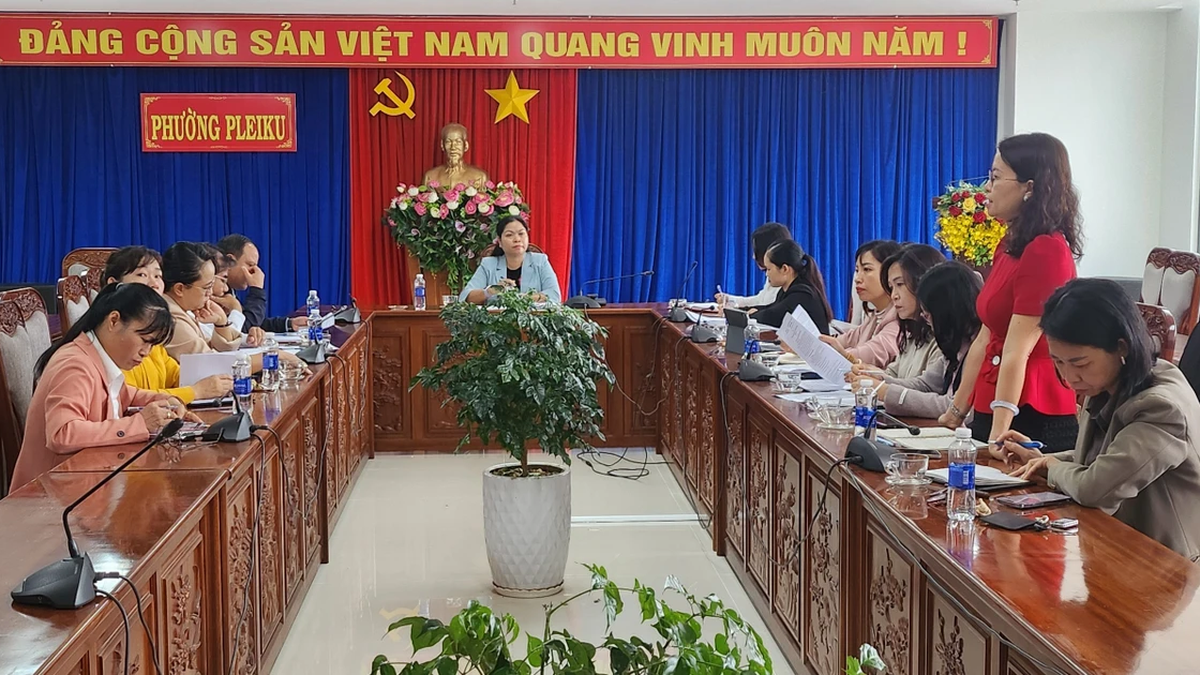
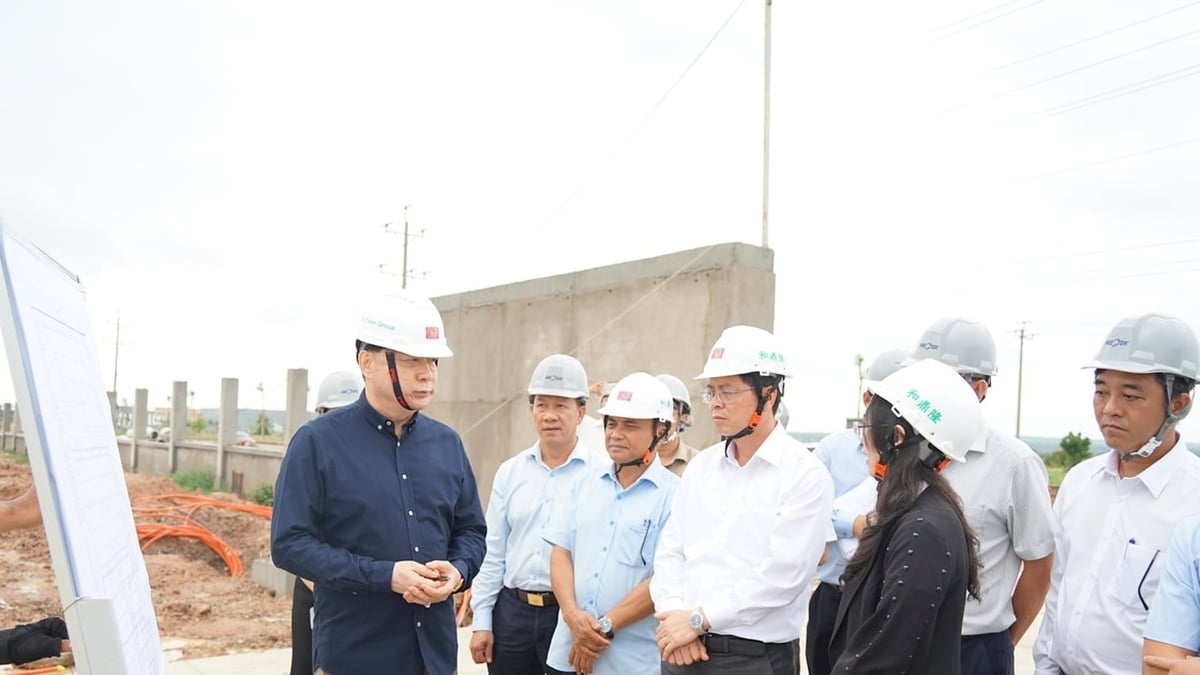



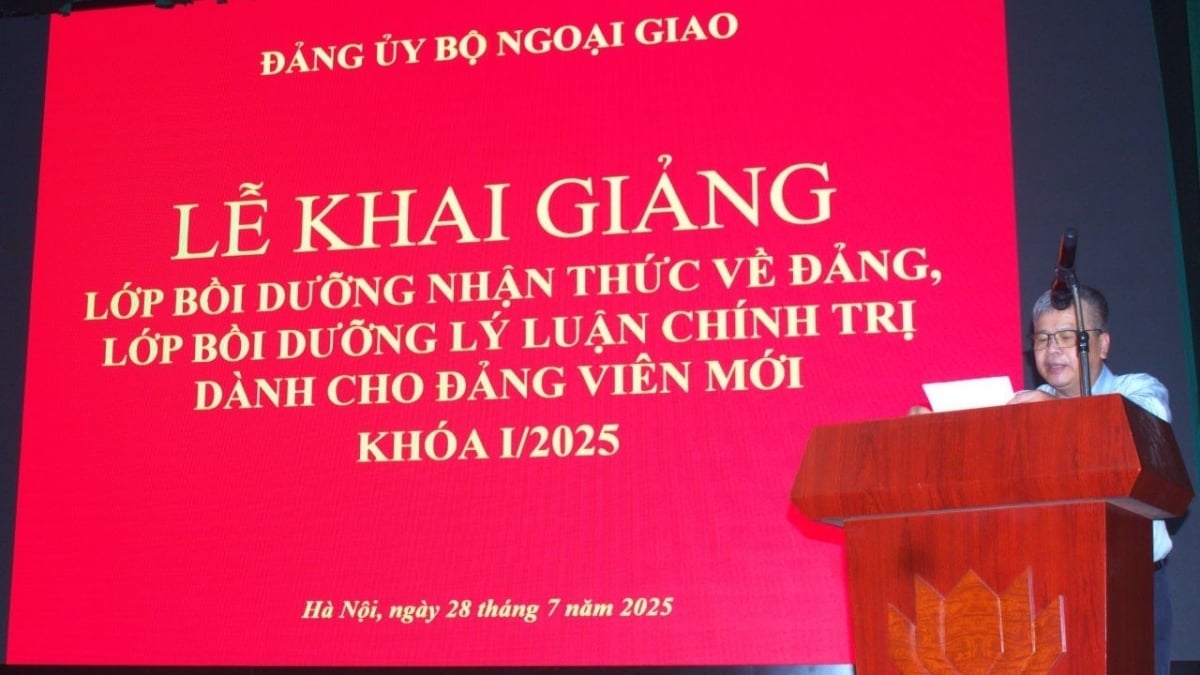
















![[Photo] National Assembly Chairman attends the seminar "Building and operating an international financial center and recommendations for Vietnam"](https://vphoto.vietnam.vn/thumb/1200x675/vietnam/resource/IMAGE/2025/7/28/76393436936e457db31ec84433289f72)










































































Comment (0)